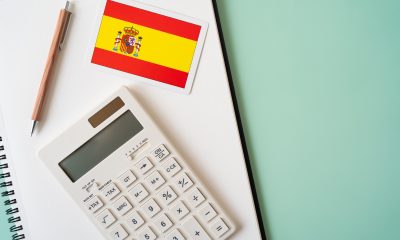Cost of Living
The Cost of Living in Spain: What You Need to Know
Living in Spain has long been an attractive option for expatriates and locals alike, offering a high quality of life with a relatively affordable cost structure.
However, understanding the specifics of the cost of living in Spain, especially in comparison to other European nations, can help you plan effectively whether you are moving,
retiring, or simply exploring new life options in this beautiful country.
In this article, we break down the main costs involved in living in Spain, covering housing, utilities, food, transportation, and other essential expenses.
Housing Costs
Housing is generally the largest expense for residents, and costs can vary significantly depending on location.
Madrid and Barcelona:
Spain’s two largest cities are also the most expensive, especially in prime neighborhoods.
Renting a one-bedroom apartment in these cities averages around €800-€1,200 per month, with prices rising to over €2,000 for larger apartments in central areas.
Valencia, Seville, and Málaga:
Cities like Valencia, Seville, and Málaga offer more affordable options, where you can rent a one-bedroom apartment for €600-€800 in the city center.
Coastal towns and smaller cities generally offer even lower rents, making them popular among expats seeking value for money.
Buying Property:
Real estate prices have been on the rise, especially in tourist-heavy areas. As of recent years, the average price per square meter in Madrid and Barcelona is around €3,000-€4,000,
while in smaller cities and towns, prices can drop to €1,500 per square meter or lower.
Utilities and Internet
Monthly utility bills for electricity, heating, cooling, water, and garbage collection vary by season and location but generally average between €100-€150.
This can increase significantly during winter months in northern regions, where heating is necessary.
Internet services are widely available, with fiber-optic connections costing around €30-€50 per month.
Many plans offer bundled services with TV and mobile packages, which can be a more economical option.
Food and Groceries
Spain offers a rich culinary tradition, and whether dining out or cooking at home, food expenses tend to be manageable:
Groceries: A single person can expect to spend around €200-€300 per month on groceries, with prices lower than in many other European countries.
Fresh produce, fish, and meats are affordable, and local markets often offer high-quality, fresh items at competitive prices.
Dining Out: Dining out in Spain is typically affordable, with local tapas bars and restaurants offering meals for €10-€15.
A mid-range three-course meal for two at a restaurant averages around €40-€50. Dining in coastal towns or tourist areas can be slightly more expensive,
but overall, Spain offers excellent value for food and dining experiences.
Transportation
Spain’s well-developed public transportation network makes it easy to get around without a car, especially in urban areas:
Public Transportation: In cities like Madrid and Barcelona, monthly transportation passes range from €40-€55, covering buses, trams, and metro services.
For occasional travelers, individual tickets are around €1.50-€2.50.
Owning a Car: Fuel costs are reasonable, averaging around €1.40 per liter. Car insurance costs vary but can range from €300-€600 annually.
While car ownership can be convenient in rural areas or for weekend trips, public transport is generally more cost-effective in cities.
Healthcare
Spain’s public healthcare system is robust and accessible, making it one of the most attractive features for residents.
EU citizens and legal residents can access free or low-cost healthcare, and the quality of public healthcare is generally high.
For those who prefer private healthcare, costs are still manageable compared to other Western countries.
Basic private health insurance plans start from around €50-€100 per month, offering quick access to private doctors and specialists.
Education
If you have children, education costs will depend on whether you choose public, semi-private (concertado), or private schools:
Public Schools: These are funded by the state and are free for residents.
They follow the Spanish curriculum and can be a good option for those looking to fully immerse their children in Spanish culture.
Semi-Private Schools (Concertado): These schools offer a balance between public and private education and charge a small fee, usually around €50-€200 per month. T
hey often follow bilingual programs.
Private International Schools: If you prefer an international curriculum, such as the British or American curriculum,
tuition fees can range from €5,000 to €20,000 per year depending on the institution.
Entertainment and Leisure
Spain’s leisure options are as diverse as its landscapes, with something for every budget:
Entertainment: Movie tickets average around €7-€10, while gym memberships typically cost €25-€50 per month.
Outdoor Activities: Spain’s mild climate encourages outdoor activities like hiking, cycling, and beach-going, which are often free or low-cost. Museums,
cultural sites, and events are widely available, and discounts are often offered to residents, students, and seniors.
Summary: Monthly Cost of Living Estimates
To give you a clearer picture, here’s a monthly breakdown of typical living costs for a single person and a family of four:
| Expense | Single Person | Family of Four |
|---|---|---|
| Rent | €600-€1,200 | €1,200-€2,500 |
| Utilities | €100-€150 | €150-€200 |
| Groceries | €200-€300 | €500-€800 |
| Transportation | €40-€55 | €120-€150 |
| Healthcare (Private) | €50-€100 | €150-€300 |
| Entertainment | €100-€200 | €200-€400 |
| Education (Private) | – | €400-€1,500 |
These estimates vary depending on the city, lifestyle, and preferences, but they offer a general view of what one can expect to spend living in Spain.
Conclusion
The cost of living in Spain is relatively affordable compared to other Western European countries, offering a high quality of life with a moderate expense structure.
Whether you’re drawn to the vibrant culture, beautiful weather, or diverse landscapes, Spain provides an inviting balance between lifestyle and cost.
Understanding these expenses can help you budget effectively, so you can make the most of your time in this beautiful country.
